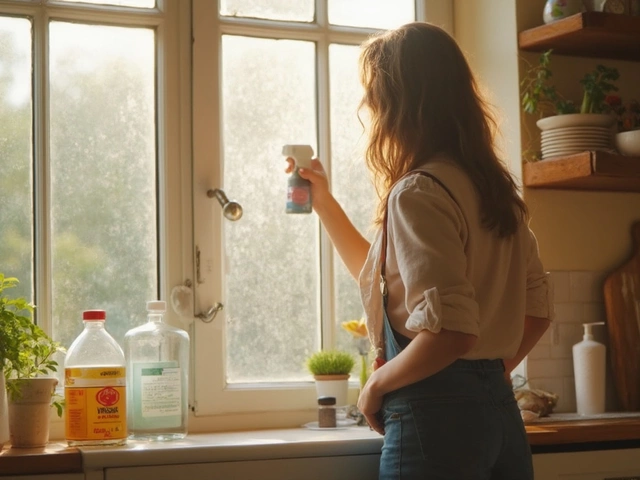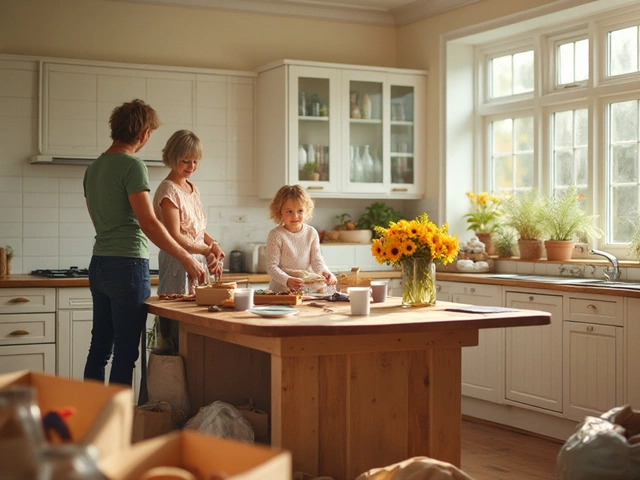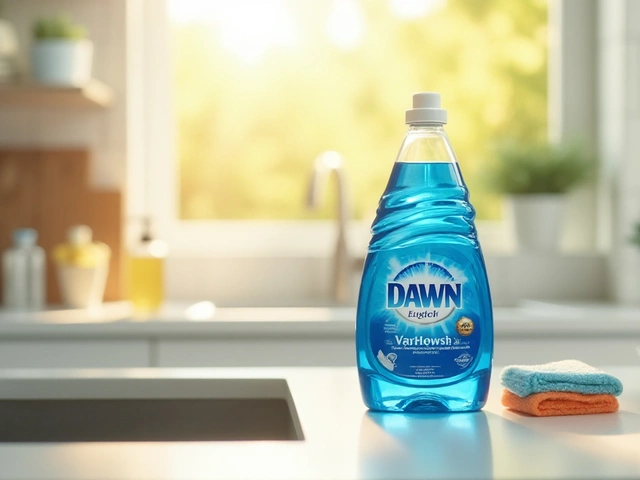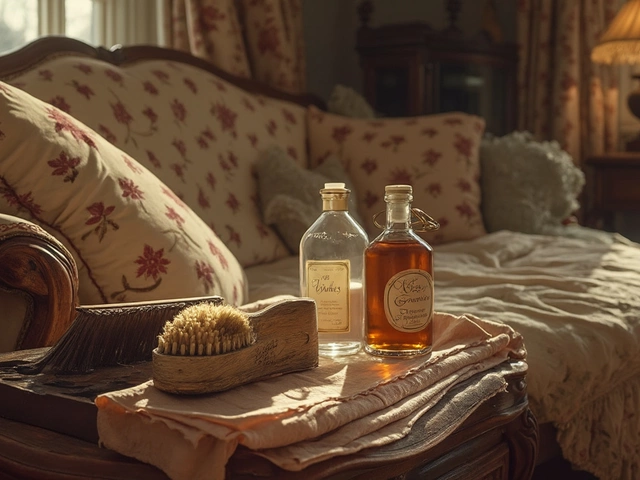We've all been there, staring at that rack of cleaning products, each with a list of chemicals you'd rather not decipher. But what if I told you that some of the best cleaning solutions could be whipped up with ingredients already in your kitchen?
Going the homemade route isn't just about saving a few quid—it's about creating a healthier home and a healthier planet. Vinegar, baking soda, and lemon might sound like the start of a strange salad dressing, yet they pack a serious punch against dirt and germs. So why stick with the commercial stuff when you can get the job done just as well, or even better, naturally?
Switching to homemade cleaners can reduce exposure to synthetic chemicals linked to allergies and other health issues. Plus, you cut down on plastic waste since you won't be buying all those new bottles every time you run out. Simple, effective, and kinder to the environment—who wouldn't want that?
Stick around as we explore tried-and-true recipes, share some pitfalls to avoid, and offer tips to achieve that sparkling clean without the environmental guilt trip.
- Why Go Homemade?
- Key Ingredients for Success
- Step-by-Step Recipes
- Common Mistakes and How to Avoid Them
- Eco-Friendly Cleaning Tips
Why Go Homemade?
Let's face it, cleaning is not the most thrilling activity, but it becomes a lot more bearable when you know you're doing it the eco-friendly way. One of the main reasons to consider homemade solutions is that they give you complete control over what you're spraying on your counters and floors. Most store-bought cleaners contain harsh chemicals like ammonia or bleach, which can be tough on your skin and respiratory system—not to mention the environment.
Another big factor is the environment. With the rising concern over plastic waste, why add more to the mix if you don’t have to? Opting for homemade cleaners means fewer plastic bottles and less waste winding up in the ocean. You also cut down on the carbon footprint associated with transporting and manufacturing these products.
Cost-Effective Choices
Everyone loves saving money, right? When you make your own natural cleaning solutions, you're not only saving on packaging but also on purchasing. Ingredients like vinegar and baking soda are dirt cheap compared to those fancy branded bottles.
Health Benefits
If you've got little ones or pets running around, you'll want to keep their environment as safe as possible. Using natural cleaning products ensures they're not exposed to chemicals that could affect their health. Ironically, some 'cleaners' actually reduce your home's air quality due to volatile organic compounds (VOCs).
In a nutshell, if you're after a more sustainable lifestyle, whipping up some homemade cleaner solutions is not only good for your home but also kind to the planet. Give it a go and see how little changes can make a big difference!
Key Ingredients for Success
When it comes to whipping up your own homemade cleaners, a few pantry staples are the heroes of the day. Let's dive into these magical ingredients that can turn your cleaning routine into an eco-friendly powerhouse.
1. White Vinegar
This stuff is a wonder cleaner! Its acidic nature cuts through grease, dissolves mineral deposits, and acts as a powerful disinfectant. It's perfect for glass, countertops, and even as a fabric softener. Just avoid using it on natural stone like granite and marble since it can etch the surface.
2. Baking Soda
Meet your new best friend. Baking soda neutralizes odors, scrubs off grime without scratching surfaces, and even unclogs drains when combined with vinegar. It's great for tackling tough stains and lifting odors out of carpets. Remember to rinse well to avoid any residue.
3. Lemon Juice
Lemons aren't just for lemonade. Their citric acid breaks down stains, polishes metal, and leaves a fresh scent. It’s especially useful for cutting through grease and adding shine to dull surfaces. Mix with baking soda for a cleaning paste that packs a punch.
4. Essential Oils
Not only do they add fragrant notes, but many have antibacterial properties too. Tea tree oil, lavender, and eucalyptus are popular choices. Just a few drops can enhance your natural cleaning solutions. Always remember to handle essential oils with care and keep them away from pets and kids.
5. Castile Soap
This vegetable-based soap cleans almost anything, from dishes to floors. Unlike conventional soaps, it’s free from harsh chemicals, making it gentle yet effective. A little goes a long way, mixing well with other ingredients to boost their cleaning power.
| Ingredient | Uses | Precautions |
|---|---|---|
| White Vinegar | Glass, Fabric Softener, Disinfectant | Avoid on Stone Surfaces |
| Baking Soda | Deodorizer, Stain Removal, Scrubbing | Rinse to Avoid Residue |
| Lemon Juice | Grease Cutter, Metal Polisher, Stain Remover | Check for Surface Compatibility |
| Essential Oils | Fragrance, Antibacterial | Keep Away from Kids and Pets |
| Castile Soap | Dishes, Floors | Avoid in Excess to Prevent Buildup |
Stock your shelf with these all-stars, and you're well on your way to making effective DIY cleaning solutions that are as kind to your home as they are to the planet. Just imagine all the plastic bottles you won’t be tossing out with each refill!
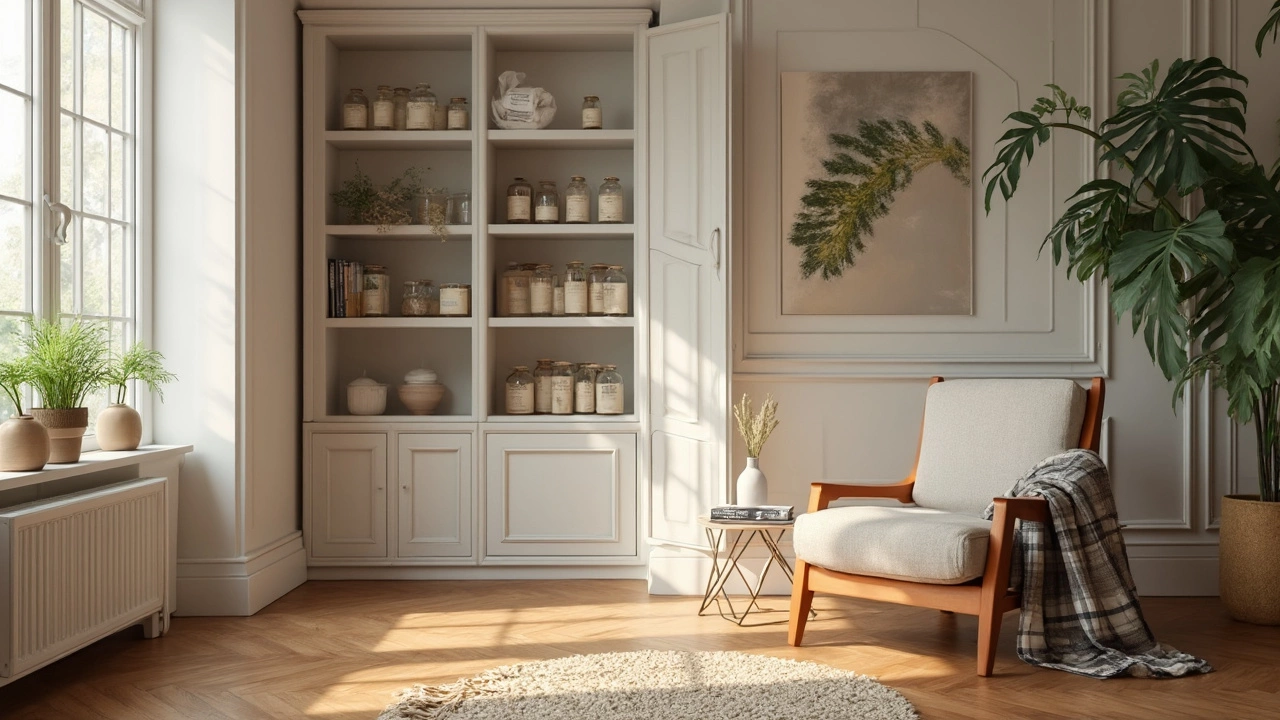
Step-by-Step Recipes
Welcome to the heart of DIY eco-friendly cleaning. Let's dive into some recipes that harness the power of natural ingredients. These aren't your grandma's remedies—unless your grandma was way ahead of her time. Let's get started.
All-Purpose Cleaner
Perfect for kitchen counters, bathroom surfaces, and pretty much anywhere else. Mix this up once, and you'll wonder why you ever bothered with store-bought cleaners.
- Ingredients:
- 1 cup of vinegar
- 1 cup of water
- 10-20 drops of your favorite essential oil (like lemon or lavender)
- Instructions:
- Mix vinegar and water in a spray bottle.
- Add essential oils for a pleasant scent (and to help mask the vinegar scent).
- Shake well before using. Spray on surfaces and wipe clean with a microfiber cloth.
Glass Cleaner
Get sparkling windows and mirrors with this simple blend.
- Ingredients:
- 1/4 cup of vinegar
- 1/4 cup of rubbing alcohol
- 1 tablespoon of cornstarch
- 2 cups of warm water
- Instructions:
- Combine all ingredients in a spray bottle.
- Shake until the cornstarch dissolves.
- Spray on glass surfaces and wipe with a lint-free cloth.
- Buff out any streaks with dry cloth if needed.
Bathroom Scrub
Keep your bathroom sparkling clean without the harsh fumes. This scrub does wonders on tubs, tiles, and sinks.
- Ingredients:
- 1 cup of baking soda
- 1/4 cup of castile soap
- 20 drops of tea tree oil (optional, for extra disinfecting power)
- Instructions:
- Mix all ingredients into a paste.
- Apply to areas that need cleaning.
- Let sit for a few minutes, then scrub away with a brush or sponge.
- Rinse thoroughly with water.
Floor Cleaner
Safe for tile, linoleum, and even most wooden floors, this mix keeps your floors spotless.
- Ingredients:
- 1 gallon of hot water
- 1 cup of vinegar
- 2-3 drops of liquid dish soap
- Instructions:
- Combine ingredients in a bucket.
- Use a mop to clean the floors, rinsing the mop frequently.
- For wood floors, ensure to wring the mop well to avoid soaking the wood.
All these recipes not only help you clean effectively but also keep harmful chemicals out of your home. Save money, reduce waste, and enjoy a healthier living space with these simple solutions.
Common Mistakes and How to Avoid Them
Jumping into homemade cleaner territory can be exciting, but it’s easy to hit a few bumps along the way. Here, we’re breaking down some of the most common blunders and how you can steer clear of them.
Using Too Much Vinegar
Sure, vinegar is a superstar in the world of eco-friendly cleaning, but it's not a one-size-fits-all solution. Its acidity can damage certain surfaces like granite or marble. Be sure to dilute it properly and research if it's safe for specific materials in your home.
Mixing Baking Soda and Vinegar Blindly
Remember those school science experiments that fizzed? That's what happens when you mix baking soda and vinegar. While it might look cool, it neutralizes the cleaning power of each. Use them separately for maximum effect.
Forgetting to Label Your Solutions
Might sound like a no-brainer, but labeling is crucial. When you’re in the cleaning zone, grabbing the wrong bottle can lead to mishaps. Mark down what’s inside and the date you made it to remember its shelf life.
Storing Your Cleaners Improperly
Temperature and location matter! Most DIY cleaning solutions need to be stored in a cool, dark place to extend their effectiveness. Direct sunlight or excessive heat can degrade their potency.
Getting the Proportions Wrong
More isn't always better. Using too much essential oil or not enough baking soda can mess up the balance, causing streaks or leaving residue. Stick to tried-and-true recipes until you’re comfortable experimenting.
So, there you have it. Avoiding these pitfalls will keep your homemade cleaning game strong and leave your home sparkling and safe without the fuss.
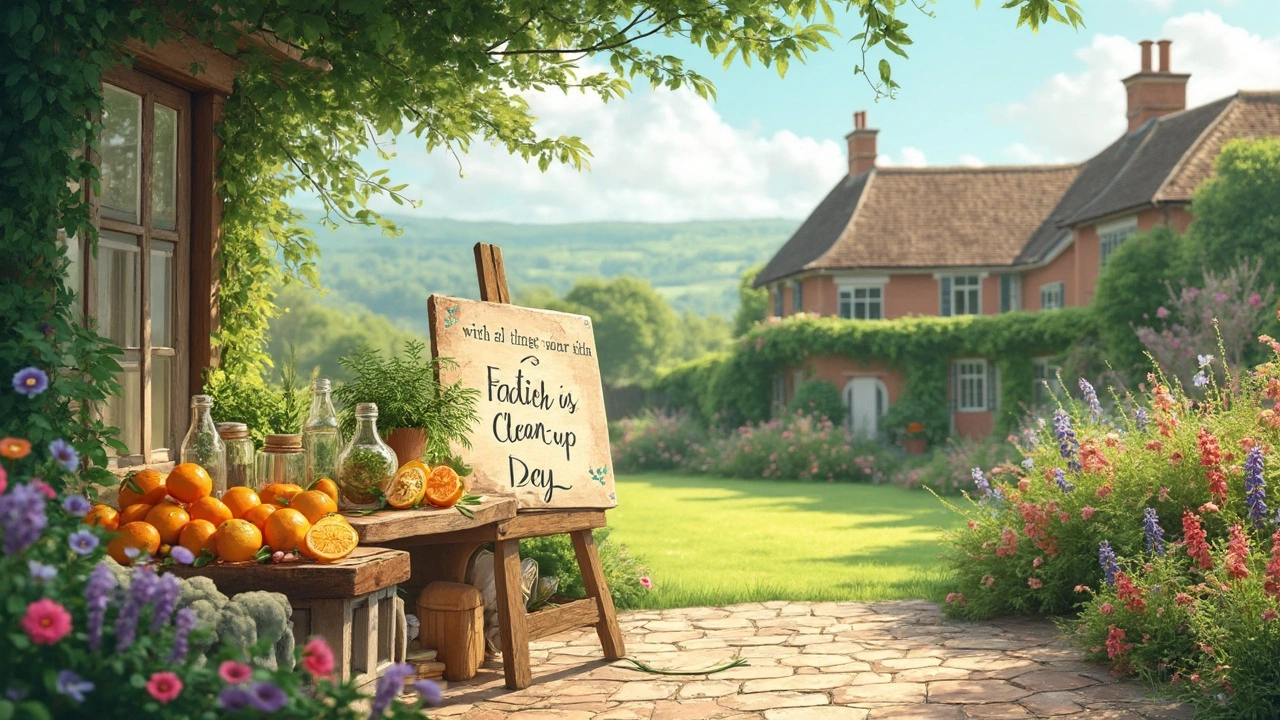
Eco-Friendly Cleaning Tips
Embracing eco-friendly cleaning doesn't mean sacrificing cleanliness or convenience. Here are some practical tips to make your cleaning routine greener and cleaner.
1. Ditch Single-Use Plastics
We're all aware of the plastic problem, so why contribute? Reuse old spray bottles for your DIY cleaning solutions. Refillable containers are your best friend and keep extra plastic out of landfills.
2. Choose Microfiber Cloths
Microfiber cloths are not just great for dusting without chemicals but also cut down on waste compared to single-use wipes or paper towels. Plus, they're washable and last ages, saving you money in the long run.
3. Use Natural Ingredients
Raid your pantry for cleaning staples like vinegar, lemon, and baking soda. These ingredients are highly effective and non-toxic, making them safe for both your family and the environment.
4. Air It Out
Sometimes the best solution is free. Open your windows to let in fresh air instead of relying on synthetic air fresheners that are full of chemicals.
5. Baking Soda for Deodorizing
Got a smelly fridge? Place an open box of baking soda inside. It's a simple trick that's been around forever because it works wonders at absorbing odors.
6. Vinegar for Windows
Mix equal parts of water and vinegar for a streak-free window cleaner. It’s cheap, effective, and completely sheds those harsh window cleaning solutions.
| Ingredient | Use |
|---|---|
| Vinegar | Windows, mirrors |
| Baking Soda | Deodorizing, scrubbing |
| Lemon | Disinfecting, fresh aroma |
By incorporating these tips into your cleaning regime, you not only reduce your carbon footprint but also ensure a healthier home environment. Remember, being clean and green can go hand in hand quite seamlessly.
